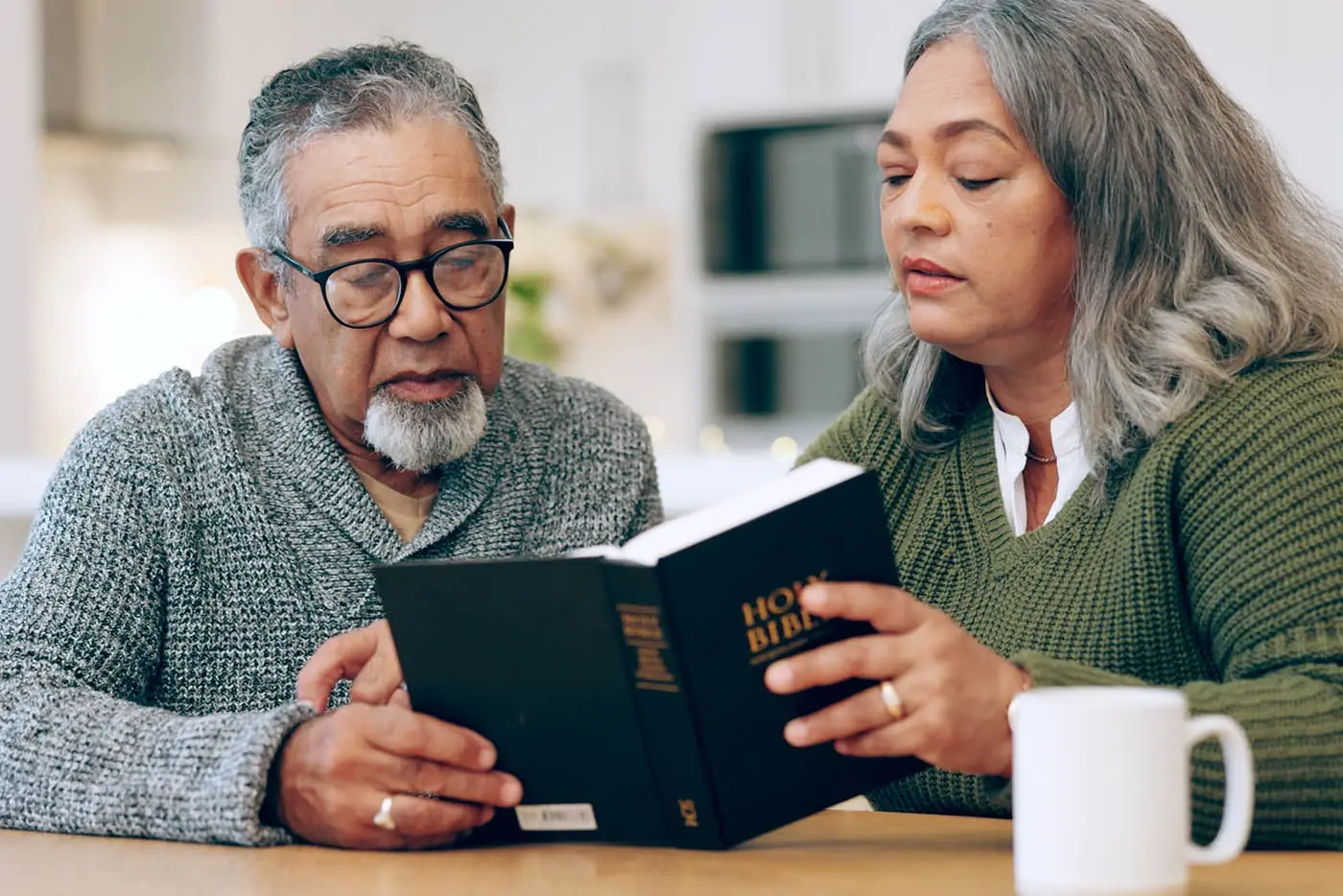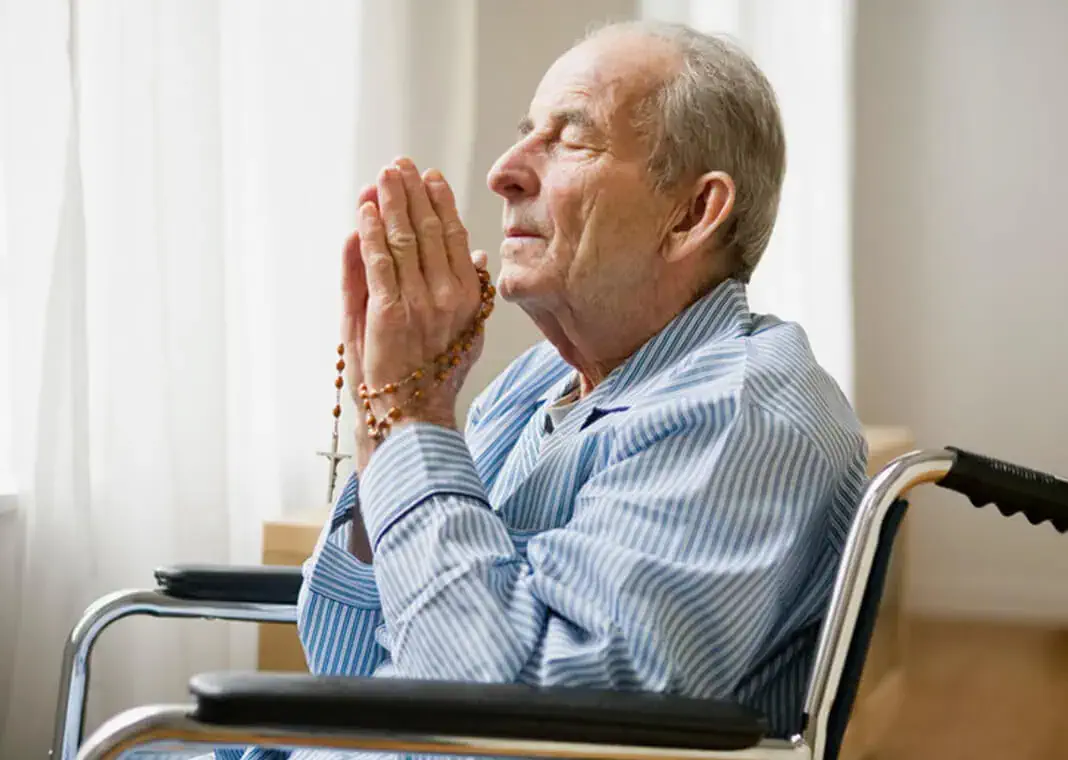
Importance of Spirituality in the Elderly Mental Health
How does spirituality help with senior mental health? Spirituality can help the elderly cope better with many of the common challenges of this period of life, such as mental and psychological illnesses, physical illnesses, social problems, loneliness and isolation, reducing stress, improving sleep quality, and other problems. Reducing stress and anxiety, increasing hope and optimism, improving quality of life, reducing symptoms of depression, increasing resilience, etc. are examples of the positive effects of spirituality on the mental health of the elderly.
Spirituality means searching for meaning, purpose, and awareness in life. This concept can include believing in a higher power, connecting with nature, or striving for a deeper understanding of oneself and the world. Spirituality is not necessarily limited to a specific religion and can be experienced in many different ways, including meditation, prayer, or service to others.
In this article from the Human Health Mag website, we are going to discuss the role of spirituality in improving the challenges of the elderly’s lives, the mechanisms of its impact, ways to strengthen spirituality, and other points related to the role of spirituality in the lives of the elderly.
How Do You Define Spirituality?
The definition of spirituality can vary from person to person, depending on their beliefs, experiences, and personal values. For many, spirituality means a connection to a higher power or God, and includes activities such as prayer, meditation, and participation in religious ceremonies.
Some people define spirituality as a search for meaning and purpose in life, and an effort to improve themselves and connect with others. Others see spirituality as a connection to nature and the world around them, which they achieve through spending time in nature and meditation.
For others, it means serving others and contributing to society, and is experienced through volunteering and altruism. Thus, this diversity in definitions shows that spirituality can be experienced in many ways, and each person can choose the path that is most suitable for them.
Challenges of Aging That Spirituality Can Help
People face numerous challenges and problems during their old age, including physical problems, social changes, and psychological changes that affect their quality of life. Some of the problems and challenges that spirituality can help with include:
- Chronic diseases such as heart problems, high blood pressure, blood sugar, and coronary artery disease, which are very common in the elderly.
- Decreased physical and motor abilities due to muscle weakness and joint problems, which can lead to greater dependence on others and reduced independence in the elderly.
- Chronic pain such as back pain and neck pain due to changes in bone and muscle structure
- Retirement and reduced income, which can cause financial worries and feelings of insecurity in the elderly
- Loss or separation from loved ones and feelings of loneliness in elderly
- Social isolation of seniors due to loss of friends and family or reduced social activities
- Depression and anxiety due to concerns about health, finances, and the future
- Memory decline

Mechanisms of Spirituality’s Impact on Mental Health in Elderly
The various mechanisms by which spirituality can affect the mental health of older adults indicate the important role of spirituality in improving mental health in older adults. Spirituality can help older adults feel that their lives are purposeful and worth continuing. It also strengthens connections with a spiritual and religious community, a sense of belonging and support, as well as a sense of connection and solidarity.
We all know that spiritual practices such as prayer and meditation can help reduce stress and anxiety. People with spiritual beliefs tend to have greater inner peace and are less likely to respond to stressful stimuli. Spirituality can increase hope in older adults and help them cope better with life’s challenges and problems. Spiritual and religious beliefs can also help create a positive attitude, which in turn can increase feelings of hope in older adults.
In addition, spirituality can help older adults feel more connected to themselves and feel more fulfilled in life. This sense of peace and hope can help combat feelings of loneliness and isolation, allowing seniors to feel like they are always connected to something bigger than themselves. And finally, spirituality helps seniors forgive the past and come to terms with their current circumstances.
Can Spirituality Help Seniors Live Longer?
Research has shown that people with stronger spiritual beliefs and a deeper connection to themselves and others tend to have better overall health and may live longer. Spirituality in the elderly can help reduce stress, anxiety, and depression, which can negatively impact physical and mental health. Having a spiritual and purposeful life can motivate you to take care of yourself and maintain your daily activities.
People who engage in spiritual activities as they age tend to have better social relationships and more social support. This helps to strengthen mental and physical health and reduces the risk of developing chronic diseases such as heart disease and diabetes. Spirituality in old age can also help people cope better with life crises and problems, such as the loss of loved ones or declining physical abilities.
How to strengthen Spirituality in the Elderly?
There are various ways to strengthen spirituality in the elderly. With the help of these methods, spirituality can solve many problems and improve the quality of life of these people:
- Participating in religious activities, praying and studying sacred texts
- Daily exercises such as meditation, prayer and yoga
- Connecting with nature, walking and spending time in nature and enjoying natural beauty
- Participating in volunteer activities and helping others
- Discovering new interests, learning new skills and participating in artistic activities

The Impact of Spirituality on the Mental Health of Elderly
Several studies have examined the impact of spirituality on the mental health of the elderly. Some studies show that spiritual therapy can significantly improve the mental health, self-care, and self-esteem of the elderly.
Some other studies have also examined the impact of spirituality on various aspects of life. These studies have shown that spirituality can have a positive impact on the quality and expectancy of life, reduce depression and death anxiety, and increase the mental strength of the elderly.
These studies say that spirituality significantly increases the quality of life and reduces anxiety and depression in the elderly. Promoting spiritual health can be effective in improving the mental health, quality of life, and life satisfaction of the elderly.
Studies conducted on the impact of spirituality on the mental health of the elderly also face limitations that highlight the need for further research. Most of the research has been conducted in specific countries and does not include sufficient cultural diversity. This issue can affect the generalizability of the results.
It is also possible that the instruments used to measure spirituality and mental health are not sufficiently valid and reliable, and there is a need to develop new instruments that are appropriate for different cultures. To improve future research, researchers should pay attention to these limitations and conduct their investigations with larger and more diverse samples, more valid instruments, and more studies.
Concluding Remarks
The elderly face various problems in social, psychological and physical areas that can affect their quality of life. Spirituality can play an important role in improving these problems. Participating in spiritual and religious activities help the elderly feel more connected to others and avoid loneliness and isolation.
Spirituality can help reduce symptoms of depression and anxiety and enhance feelings of hope and optimism. Some research has shown that spirituality and religious behaviors can be associated with slowing the progression of diseases such as Alzheimer’s. Spirituality can also help reduce pain and increase peace of mind in the elderly through relaxing activities such as meditation and prayer.
In this article, the role of spirituality in improving the problems and challenges of the elderly’s life, as well as the methods and mechanisms of strengthening spirituality in the elderly, were discussed. If you also have experience in this regard, please share with us.

Frequently Asked Questions
Does spirituality help people overcome health issues as they get older?
Yes, spirituality can help older adults cope better with health issues by slowing cognitive decline, reducing anxiety and depression, and improving coping strategies and resilience, which contribute to overall well-being and better health outcomes.
How can spirituality affect the psychological well-being of elderly people?
Spirituality enhances psychological well-being in the elderly by providing meaning and purpose in life, increasing happiness and life satisfaction, reducing feelings of loneliness and depression, and fostering a sense of inner peace and hope.
What are the effects of spiritual care on geriatric patients?
Spiritual care in geriatric patients can improve self-confidence, create life satisfaction, help adapt to stress and physical impairments, reduce death anxiety, and enhance both mental and physical health through emotional support and spiritual resources.
What is the role of spirituality in the life of the elderly?
Spirituality plays a vital role by offering a sense of faith, purpose, community belonging, inner peace, and strength to face life’s challenges. It contributes to positive aging by promoting dignity, independence, participation in society, and an active, fulfilling life.
